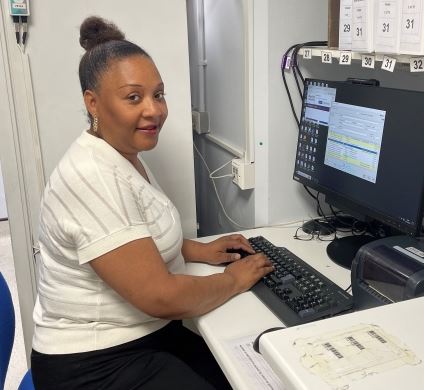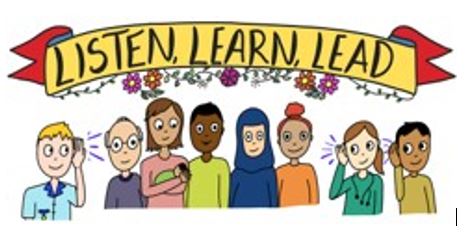Part of Guy's and St Thomas' NHS Foundation Trust

Connect
The newsletter for Trust members with an interest in heart and lung care
July/August 2023
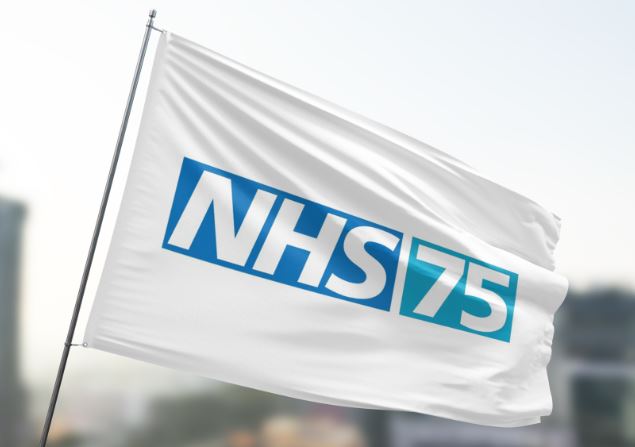
NHS at 75
5 July 2023 marked 75 years of the National Health Service. Founded in 1948 by Aneurin Bevan, the aim was to provide healthcare services that were free to all at the point of delivery. It coincided with the arrival of HMT Empire Windrush to the Port of Tilbury, bringing people from Caribbean countries to help rebuild Britain after World War II, including helping to support the establishment of the NHS.
To celebrate NHS’ 75th birthday, across the Trust we took the opportunity to look back at our achievements, and highlight the incredible work of our dedicated workforce who come from all over the world. Hear a special tribute from a few of our staff who send their birthday greetings to the NHS in different languages.
NHS at 75: hope for cardiac patients
since its birth
Historical hospital archives have revealed a poignant letter exchange between a patient and a member of staff in 1948 – 75 years ago, the year that the NHS was formed.
On 7 October 1948 the patient writes: “I am really not too well – my heart troubles me quite a lot, I do not see my Dr very often (as expenses are high) & I just try & carry on as best I can.”
Less than a week later, the acting almoner – a medical social work position that was then based at Brompton’s tuberculosis sanatorium in Frimley – replied: “I am sorry to hear that you are not well, and that you do not see a doctor very often because of the high cost of living. Since the Fifth of July this year, it has become possible by law for everyone to have free medical treatment.”
The Brompton Hospital, now Royal Brompton Hospital (part of Guy’s and St Thomas’ NHS Foundation Trust), came under the control of the NHS in 1948. Before that time, the Lady Almoner’s department would be responsible for assessing patients’ means and keeping contact with them to understand the impact of treatment. Further information about the role of this department can be found in an article in the journal Medical Humanities.
Chief executive for Royal Brompton and Harefield hospitals, Richard Grocott-Mason, said: “This remarkable exchange of letters, at such a poignant moment in time, shows just how precious the NHS is, and why. While nearly everything else about it has changed over the last 75 years, the principle of free care for all – as illustrated here – has remained exactly the same.”
Read more here.
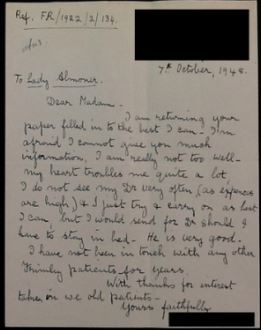
Windrush generation descendant Laura Banton shares family's Windrush story
June 22nd marked the 75th anniversary of the arrival of HMT Empire Windrush to the Port of Tilbury in Essex, bringing people from Caribbean countries who transformed British culture for the better.
Many of the passengers on that boat – as well as their descendants – helped support the establishment of the NHS, which launched two weeks later.
Laura Banton, senior clinical trials pharmacy assistant at Royal Brompton Hospital, represented the Trust along with other NHS professionals and volunteers, on a special boat trip from Waterloo to the Port of Tilbury. The trip, along with many other events and activities, honour and commemorated the Windrush generation, the sacrifices and the contributions that they and their descendants have made to British society within the UK.
Laura’s parents came to the UK from Jamaica. Her mum worked in the NHS until she retired. Laura is a member of the Black, Asian and Minority Ethnic staff network. Here she shares her story
“It’ll be special to me to be on the boat trip.
I’ve always been interested in Black history and social history. My dad loved history. He would always encourage me and my siblings to learn about what’s going on in the world around us, and about where we come from.
In October last year I was asked to do a talk at our staff forum about Black History Month. Coincidentally it fell on the same day as my dad’s 90th birthday. He passed away in November – just a month later. It’ll be special to me to be on the boat to Tilbury.”
Hear from other staff including Precious James, a staff nurse on Foulis ward who tells us why she chose to be part of the Migration Museum’s exhibition, Heart of the Nation: Migration and the Making of the NHS. We also spoke with Helen and Peter Doyle, who met at West Middlesex Hospital in 1986 before moving to Harefield Hospital a few years later. They tell us about their journey into nursing against a backdrop of an impressive 75 years of NHS service they’ve clocked up between them.
Read more here.
The CF family
Cystic Fibrosis Week – 12-18 June 2023 – is marked annually, to raise awareness of cystic fibrosis (CF). Luke Blair, head of communications, spent time with our CF team to uncover the important work they do as part of one of the largest CF centres in Europe.
Cystic fibrosis is one of those particularly unpleasant diseases that is inherited through family genes.
If both parents carry the faulty gene, there is a 1 in 4 chance their child will be born with it. Children with the disease will cough and wheeze as they grow up, struggling to breathe and to thrive. The predicted survival for a child born with ‘CF’ today is 53.
“The mucus in the lung just gets thicker and thicker,” explains the director of the adult cystic fibrosis centre at Royal Brompton, one of the first to be set up back in the 1960s, and today among the largest in the world.
In CF there is a mutation in the gene that normally produces a key protein, she explains. That protein controls the movement of water and salt in and out of cells, including the production of mucus. So when it goes wrong, the mucus becomes sticky.
This affects not only the lungs, but the digestive system, the pancreas, the liver…essentially, most of the body’s organs.
Which is why this morning, going through the daily patient list at the CF centre, there are no fewer than eight clinicians in the room, and a further 13 online on the screen in front of us. It is a large multi-disciplinary team. There are physiotherapists, pharmacists, dietitians, specialist nurses, psychologists, and consultants.
They go through the list. The point is to assess each person with CF, where they are with their current illness, what their treatment is, whether they need more of this, less of that, how they are feeling.
Some are in the hospital, some are being treated at home, and they come from all walks of life. Like all diseases, CF is a leveller. Its lifetime of impact also means most have been on the list receiving treatment since they were babies.
“They have never known anything else. We are part of their lives and they have no choice about it,” says the director. This has its upsides – everyone knows each other really well – and also its downsides. “They tend to tell us just what they think.”
Read more here.
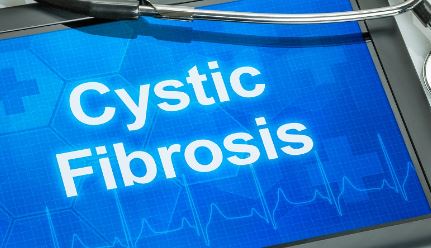
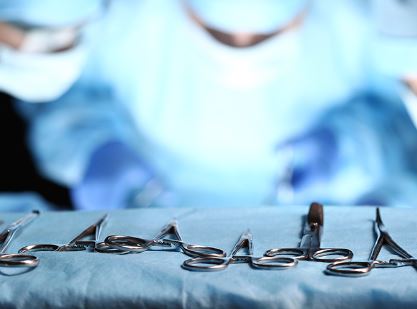
Artificial intelligence to provide ‘wisdom’ in the care of surgical wounds
An exciting new nurse-led study aims to test the use of artificial intelligence (AI) in surgical wound management to help prioritise and highlight wounds which need urgent review or treatment.
Led jointly by Melissa Rochon, lead for surgical site infections surveillance, research & innovation at Royal Brompton and Harefield hospitals, and Professor Judith Tanner from the University of Nottingham, the project known as WISDOM aims to develop a specific AI module which will prioritise surgical wound images that are failing to heal or are infected, in order to facilitate early treatment.
Surgical wounds
A surgical wound is the cut made into the skin by a surgeon during an operation. At the end of the operation, the skin is stitched back together to allow the skin edges to come together and heal.
Most surgical wounds heal without causing any problems or complications. However, in some cases the wound may become infected, which can result in wound healing delays, hospital re-admission or further surgery.
Each year approximately 2.1 million surgical patients in England have wound healing problems after surgery, of which 500,000 become infected. Most of these wound complications happen after patients have been discharged from hospital.
Read more here.
Measuring the effects of physiotherapy in children after heart surgery
Can lung ultrasound be used to measure the amount of air in the lungs (lung aeration) and help determine whether chest physiotherapy is useful in children after heart surgery? That’s what Jennie Balls, paediatric physiotherapist at Royal Brompton and Harefield hospitals, hopes to find out.
Thanks to funding from the National Institute for Health and Care Research (NIHR), Jennie will be undertaking a doctoral clinical academic fellowship, which will see her run clinical observational studies in the paediatric intensive care unit at Royal Brompton Hospital and complete a PhD
Most impressively, there were 6 doctoral clinical academic fellowships granted to London-based applicants, 3 of which were to staff at Guy’s and St Thomas’ NHS Foundation Trust.
Read more here.
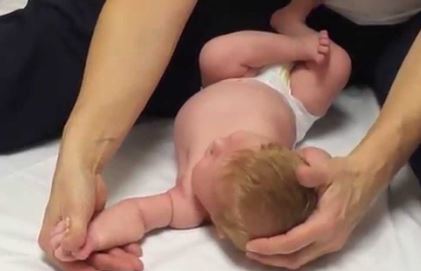

An alternative to the 'one-size-fits-all' approach to treating fungal lung infections
A new research study aims to investigate which treatments work best on patients with allergic bronchopulmonary aspergillosis (ABPA), the most common form of chronic fungal lung infection in patients with long-term lung disease.
Thanks to funding from the National Institute for Health Research, Lisa Nwankwo, specialist pharmacist in antimicrobials at Royal Brompton and Harefield hospitals, will be undertaking a doctoral clinical academic fellowship, which will enable her to conduct the study.
Notably, Lisa was the only pharmacist awarded the fellowship nationally, and 3 out of the 6 fellowships awarded in London were to staff at Guy’s and St Thomas’ NHS Foundation Trust.
What is ABPA?
ABPA is form of lung disease caused by an allergic reaction to the fungus, Aspergillus fumigatus. Symptoms include cough (sometimes coughing up blood), fatigue, shortness of breath and weight loss. The disease causes progressive lung damage and leads to increased infections, which means patients are admitted to the hospital more frequently.
ABPA affects approximately 175,000 people with asthma in the UK, 19% of people with cystic fibrosis, and 1-3% of people with chronic obstructive pulmonary disease (COPD).
The current standard of care treatment for ABPA involves oral corticosteroids and antifungal treatment. However, these are not very good at treating ABPA and also have many side effects.
Newer treatments for ABPA have been developed which work better and are well tolerated by patients. However, there are very few trials on their effectiveness for patients with ABPA.
Additionally, there is also a need to find new ways to check how the patient is feeling and if they are getting better or worse with the treatment. Since the disease is long-term, it is important that patients feel comfortable with the tests used to track their symptoms.
Read more here.
Showcasing Collaboration
The Simulated Interprofessional Team Training (SPRinT) team from the paediatric and recovery departments at Royal Brompton successfully presented two pieces of work at the International Paediatric Simulation Society event in Lisbon. The first project presented was the simulation of a paediatric patient journey with an aim to find out if the new bronchoscopy suite was fit for purpose for these patients. The second was the undertaking of workshops and paediatric emergency simulations to boost the confidence and readiness of staff in the recovery unit.
Kumi de Costa, lead nurse for the SPRinT programme, said: “The SPRinT programme is designed to provide unique and tailored learning opportunities for nursing, medical and allied health colleagues. It offers highfidelity, in-situ point-of-care simulation education and training. Both projects highlighted the programme’s ability to provide this, as well as the excellent collaboration among paediatric and recovery teams at Royal Brompton.”
Join our Patient Forum
Improving heart and lung care for our patients
We are actively recruiting people to join our patient and public engagement group. This is a patient forum which meets virtually every two months to discuss issues of concern to members.
Please consider joining if you are:
- a family member or carer of people treated for heart and lung disease at Guy’s, St Thomas’, Harefield or Royal Brompton Hospitals
- aged 18 to 35 (although we encourage anybody interested to apply, regardless of age)
- from the global majority
- living with chronic conditions and/or disabilities
To become a member of the PPEG, please complete the expression of interest form by 15 September.
The form will ask you how you would like to be involved and your communication preferences. We use this information to develop an active and responsive patient network to partner with staff and drive improvements to patient care.
Find out more here, including how to get in touch.
Royal Brompton & Harefiled Hospitals Charity
Next Generation Genetics appeal
Improving diagnosis for patients and their families
Royal Brompton and Harefield hospitals lead the world in innovative diagnosis and treatment of heart and lung disease. One reason for this is their genetics and genomics team who help with the diagnosis of inherited conditions.
Currently, the team conducts a third of all tests nationally for inherited lung conditions and a quarter of all tests for inherited heart conditions, but they need new equipment to keep up with the demand for their services.
Where will my money go?
Here at Royal Brompton and Harefield Hospitals Charity, we are committed to keeping the hospitals at the leading edge of patient care. To help with this, we are raising funds to provide the genetics and genomics team with a state-of-the-art Next Generation Sequencer to help with their ground-breaking work.
In this video Mat, deputy head of the genetics and genomics lab, explains how a diagnosis is reached from a sample. Click here or on the image to watch the video.
How you can help?
By fundraising or donating to this appeal you are helping the hospitals do the vital work of testing patients like Sienna and her family for inherited heart and lung conditions.
This means patients can know about conditions earlier when they are easier to treat or can be prevented from developing. Your donations will save and enhance many lives.
Click here to read more and learn how you can help.
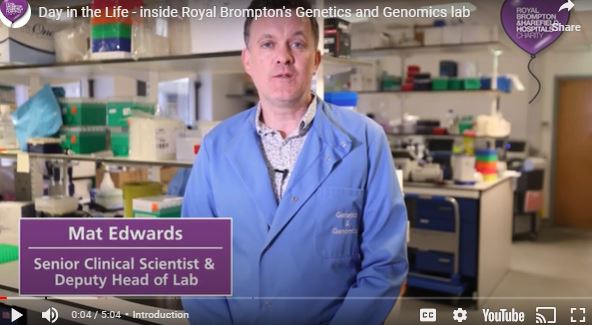

Guy’s and St Thomas’ NHS Foundation Trust Annual Public Meeting
Wednesday, 13 September
6.00 - 7:30pm
We hope you can join us for our Annual Public Meeting on Wednesday 13 September which is taking place in person at St Thomas’ Hospital and virtually via Microsoft Teams.
Speakers will include the Trust Chairman Charles Alexander, our Chief Executive Prof Ian Abbs, and our Lead Governor John Powell.
The meeting will feature updates on the Trust’s work over the past year and our priorities for the year ahead, including the upcoming launch of our new Epic electronic health record system and patient portal.
There will also be an opportunity for you to submit any questions you might have.
This event is open to all, so please do share this invite with anyone you think would be interested in joining.
If you would like to join, please email [email protected] to register your interest. Joining instructions will be sent ahead of the event.
We hope to see you on 13 September.
To learn more about your Trust membership, share your feedback or update your contact details, please contact Nancy Dickinson at [email protected]
To unsubscribe click here.

